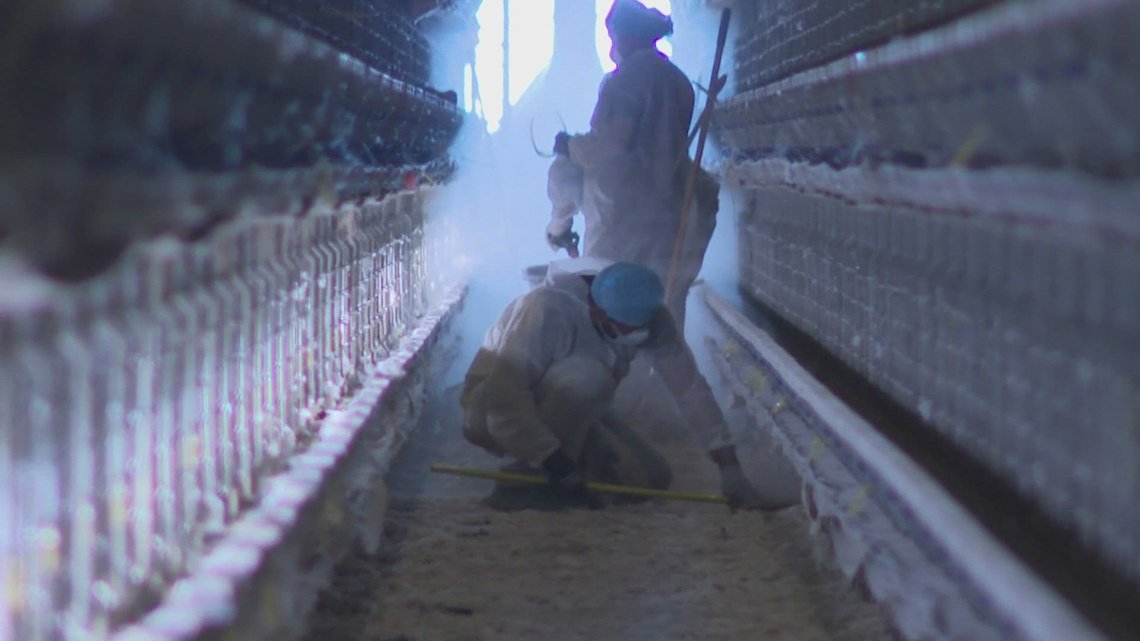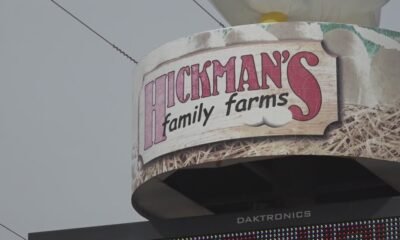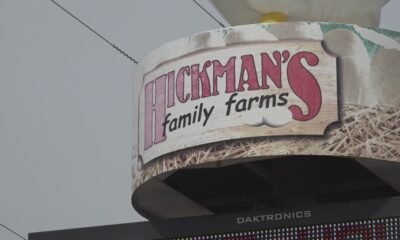Business
Hickman’s Eyes $100 Million Federal Windfall

Hickman’s Family Farms, Arizona’s largest egg producer, could receive up to $100 million in federal compensation due to the fallout from a March bird flu outbreak. This financial assistance, inferred from USDA guidelines, follows the culling of 6 million chickens to curtail the virus’s spread.
Residents are apprehensive about the implications of taxpayer dollars funding such payouts. “I don’t want my tax dollars going to that,” stated Tonopah local Dan Blackson. Federal indemnity payments, recently increased to $16.94 per hen, follow mandatory culling in the face of bird flu outbreaks.
Hickman’s reported losses indicate potential indemnity payments could soar to $102 million. However, CEO Glenn Hickman declined to specify the amount when questioned by 12News about possible compensation.
Amidst increasing scrutiny, nutrition and well-being advocates are urging Hickman’s to clarify how they plan to utilize any received funds. “It is worth asking Hickman’s why they aren’t using some of that money to preserve the livelihoods of the people working for you,” remarked JC Berger of the Fair Agriculture Council.
Hickman asserts that restrictions from the USDA have exacerbated the situation, limiting vaccine use that could prevent outbreaks. “If we could vaccinate our chickens, we could significantly reduce wasteful indemnity payouts,” he shared.
The incident has reignited criticism of Concentrated Animal Feeding Operations (CAFOs). Berger noted that overcrowded conditions have bred the current crisis. “Corporations have created the perfect conditions for outbreaks,” he stated. Meanwhile, researchers highlight that both confined and pasture farms face risks due to interactions with wild birds.
The outbreak also strikes a nerve in Tonopah, where Hickman’s history of litigation with local residents has created tension. Concerns over water contamination from mass burials of chickens amplify community anxiety. The Arizona Department of Environmental Quality (AZDEQ) has granted Hickman a temporary waiver for burial sites, while hydrology studies determine long-term risks.
Critics are questioning Hickman’s preparedness for such outbreaks. Berger emphasized the need for accountability: “Hickman’s exemplifies systemic issues in the food industry, showing negligence that impacts both community and environment.”
Community members, previously involved in lawsuits against Hickman’s for environmental violations, express continued frustrations. Blackson, a plaintiff in a prior lawsuit, insists that Hickman’s has yet to fulfill recent commitments to mitigate odors from wastewater lagoons.
Additionally, criticism extends to Hickman’s decision to employ underpaid prisoners and the subsequent layoffs due to the outbreak. Blackson likened the practice to government subsidy while voicing discontent over potential federal indemnity payouts.
The situation underscores wider concerns surrounding industrial agriculture’s practices and their impact on both local economies and animal welfare. As the community continues to navigate this crisis, the discourse surrounding agricultural responsibility and sustainability remains more pertinent than ever.




![Katrina Woods stands next to her attorney, Ron Reyna, during her arraignment at Pinal County Superior Court on May 9,. 2025. Top: Snippets from court records show what Woods pleaded to in her county case. [David Iversen/Pinal County Superior Court/graphic]](https://arizonanews.org/wp-content/uploads/2025/06/FEMA-Fraud-Suspect-Katrina-Woods-Shocks-with-Plea-Deal-Now-400x240.jpg)
![Katrina Woods stands next to her attorney, Ron Reyna, during her arraignment at Pinal County Superior Court on May 9,. 2025. Top: Snippets from court records show what Woods pleaded to in her county case. [David Iversen/Pinal County Superior Court/graphic]](https://arizonanews.org/wp-content/uploads/2025/06/FEMA-Fraud-Suspect-Katrina-Woods-Shocks-with-Plea-Deal-Now-80x80.jpg)












